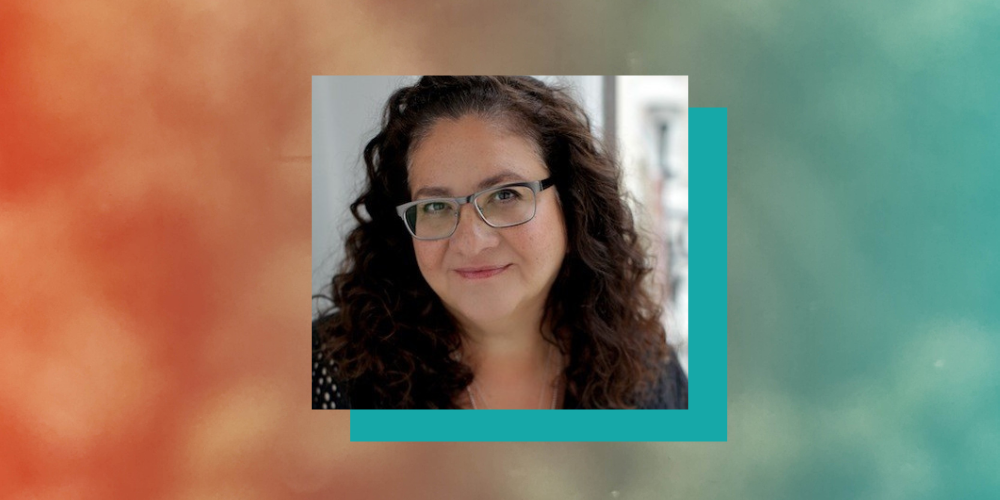Alumni Spotlight: Migdalia Cruz '84
The Alumni Spotlight is a place to hear from the School of the Arts alumni community about their journeys as artists and creators.
Migdalia Cruz '84 is an award-winning playwright, lyricist, translator, & librettist of more than 55 works including: El Grito Del Bronx, Salt, Lucy Loves Me, Fur, Miriam’s Flowers, Frida, & Lolita de Lares; produced in the U.S. & abroad in venues such as BAM, CSC, Mabou Mines, National Theater of Greece/Athens, Old Red Lion/London, Houston Grand Opera, Ateneo Puertorriqueño, Teatro Vista, CollaborAction, and Latino Chicago Theater Company where she was a writer-in-residence. An alumna of New Dramatists, she was named the 2013 Helen Merrill Distinguished Playwright, and was nurtured by Sundance, the Lark’s México/US Word Exchange, & by Maria Irene Fornés at INTAR. Migdalia was born in the Bronx where she wrote her first play at age six. Current projects include: a limbo-fantasia about El Pirata Cofresí & Robert Johnson—The Two Roberts; a re-imagining of Fellini’s & Petronius’ Satyricon—Satyricoño; and an elegy about Chekhov, commitment, and consumption—Never Moscow.
Was there a specific faculty member or peer who especially inspired you while at the School of the Arts? If so, who and how?
Dr. Bernard Beckerman was inspirational in ways that were both surprising and deep. He was the Interim Chairman of the Theater Department and a Shakespearean scholar. I was an aspiring playwright who had no real idea how to write a play. He taught me how to listen to the heartbeats of others.
He did this in two ways: in his Semiotics Class I learned about the power of language to signify emotional journeys; and by sharing his story of how he witnessed and participated in the release of concentration camp prisoners when he was a soldier. It was incredible to think that such a sensitive and caring man was able to view the worst of humankind and still believe in the power of human kindness. That I think was his greatest gift to me. That he treated a young woman from the South Bronx with so much compassion and understanding even when he knew I had so much left to learn about being a playwright.
How did attending the School of the Arts impact your work and career as an artist?
It was important to my career to graduate with an MFA in order to teach. As a theater artist, I had no idea how I would have made a living without teaching as a back-up plan. I also met George Ferencz at Columbia and we became collaborators later in life when I had my first production at INTAR on Theatre Row. The connections I made there enabled me to find my voice and pay for the lessons too. Also, while I was Columbia, I interned for Mabou Mines, and got the greatest life-in-the-theater lesson as I watched how they negotiated children and marriage all while creating some of the most exciting theater work of the 1980s.
What were the most pressing social/political issues on the minds of the students when you were here?
The Theater Department was just building itself back from having been dismantled in the 70s to silence the anti-war activist students who seem to have mostly been in the Theater. Bravo to them! But that left the Theater Department at sea when I arrived. We had interesting professors but the reputation of the department had to be re-built as well as its physical space.
I think the early 1980s was about finding oneself without the “causes” to help define you. It was a time where the free love of the 60 & 70s was becoming the darker and sadder era of HIV/AIDS. Birth control became survival and free love had a price.
If you could revisit any piece you created during your time at the School of the Arts, which would it be? Why?
I adapted a short story by Colette called "Gribiche." I would revisit it in order to write it better. It was a beautiful story and I let some harsh criticism from my classmates dissuade me from finishing the piece. It’s hard to protect your work when it is just beginning to form. One has to be so careful whom one takes advice from and has to always put all criticism into proper perspective. Not everyone’s opinion can be equally weighted. So important to listen to people you trust as both artists and human beings.
What was your favorite or most memorable class while at the School of the Arts?
I enjoyed George Ferencz’s class that paired writers and directors weekly in a workshop/laboratory to create scenes and build a way of working unique to each pairing. I think I learned a lot about collaboration and also about how to protect my work and negotiate with directors.
2015: FRIDA at Michigan Opera Theatre; Satyricoño at INTAR New Works Lab and Latina/o Commons/HowlRound Carnaval of New Plays at DePaul; Yellow Eyes at Visión Latino; Latins In La-La Land at the College of Wooster.
